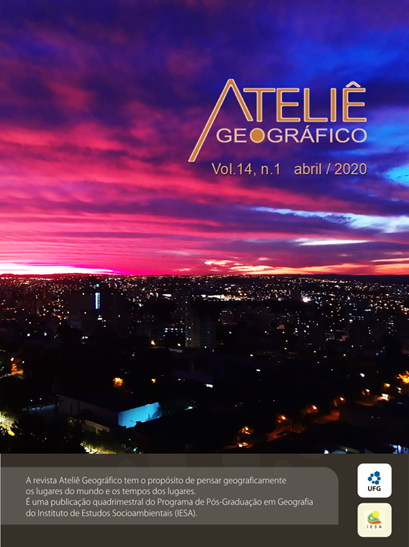Corporate usage of the territory and the new Territorial division of labor in Rio Grande do Norte's garment industry
DOI:
https://doi.org/10.5216/ag.v14i1.60143Abstract
The garment production in Rio Grande do Norte (RN) used to be characterized by a concentration of companies and job opportunities in Natal. Recently, there was a reduction of these variables in the aforementioned capital, while a contrary movement was observed in the countryside of the state. The aim of this paper is to understand the changes in the territorial division of labor of the garment industry in RN. Methodology included bibliographic review, systematization of secondary data and empirical research. We found a redefinition of the division of labor, with agents promoting corporate usage of the territory. This causes dispersion of the production units that perform sewing services to municipalities in the Seridó region of the state. In contrast, the large factories continue to be in charge of production by performing other stages of the production process in the cities of Natal and Parnamirim. The outsourcing of the sewing production consolidated in Seridó an internal division of labor focused on the textile and clothing sector, with some municipalities sewing for large factories, while others specializing in producing clothing accessories and household textile articles.
Keywords: Rio Grande do Norte; garment; territorial division of labor; outsourcing.
Downloads
Downloads
Published
How to Cite
Issue
Section
License
Autores que publicam nesta revista concordam com os seguintes termos:- Autores mantém os direitos autorais e concedem à revista o direito de primeira publicação, com o trabalho simultaneamente licenciado sob a Licença Creative Commons Attribution que permite o compartilhamento do trabalho com reconhecimento da autoria e publicação inicial nesta revista.
- Os autores não serão remunerados pela publicação de trabalhos na Revista Ateliê Geográfico. Além disso, os conteúdos publicados são de inteira e exclusiva responsabilidade de seus autores, ainda que reservado aos editores o direito de proceder a ajustes textuais e de adequação às normas da publicação.
- Autores têm permissão e são estimulados a divulgar seu trabalho online (ex.: em repositórios institucionais ou na sua página pessoal), já que isso pode gerar alterações produtivas, bem como aumentar o impacto e a citação do trabalho publicado (Veja O Efeito do Acesso Livre).


